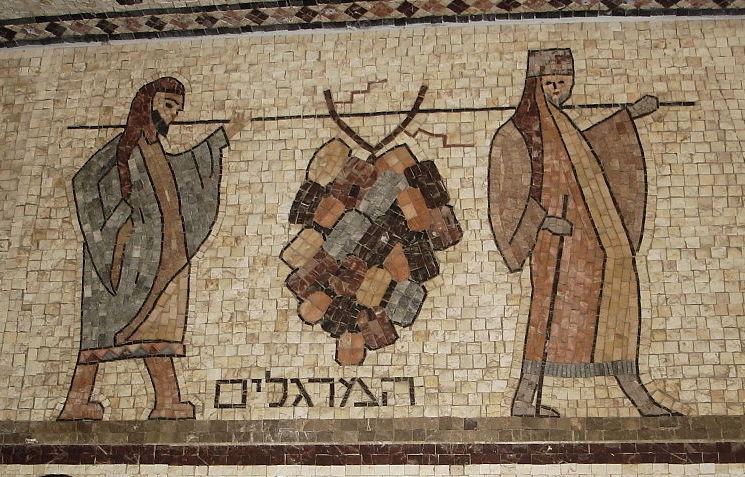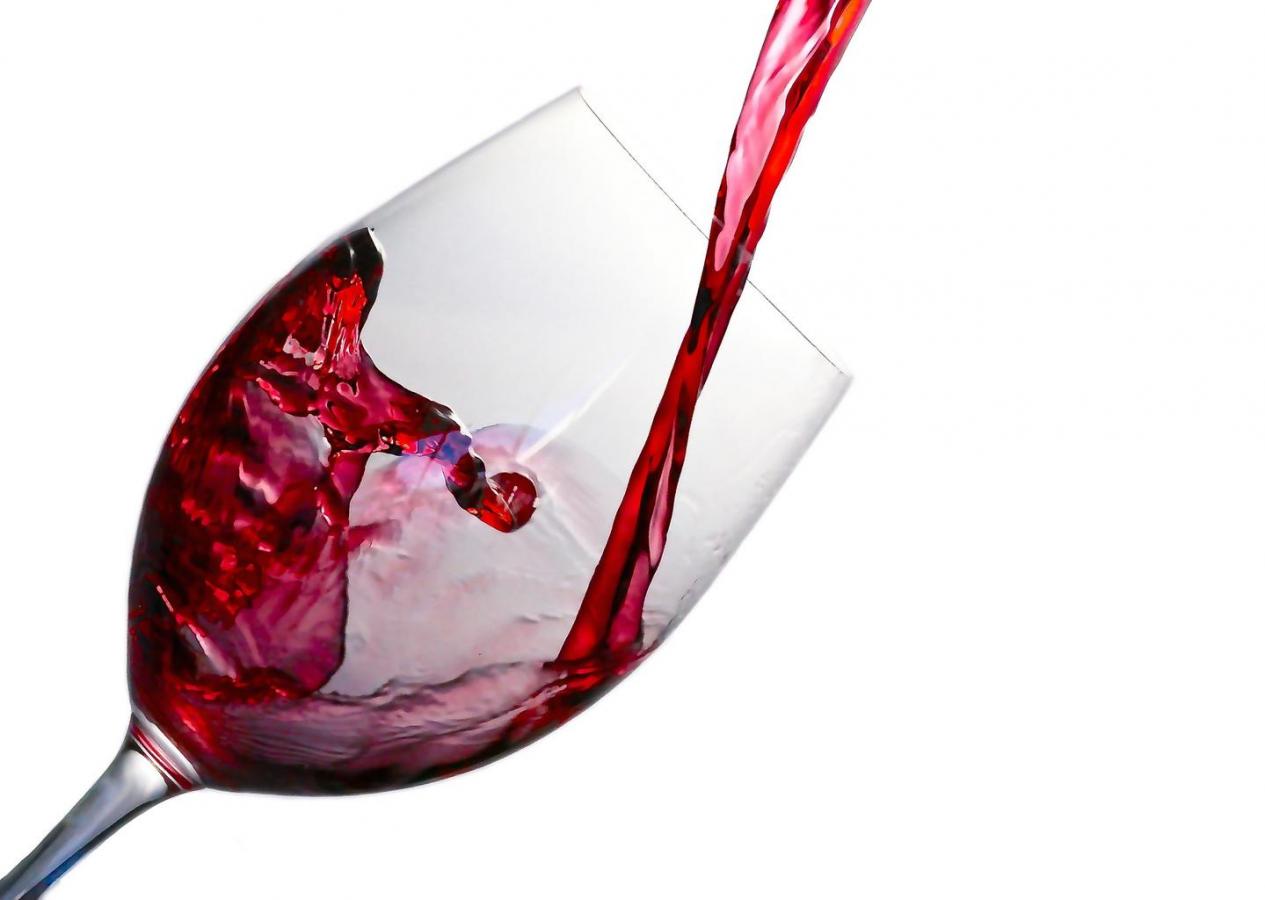Judaism has a complicated, double relationship with alcohol — and, in particular, wine. On the one hand, wine, which “cheers the hearts of men” (Psalm 104:15), is a significant component of many Jewish rituals. Kiddush is recited on Shabbat and holidays over a cup of wine. Four cups of wine are integral to the Passover seder. Wine figures prominently in Havdalah, Brit Milah, wedding ceremonies and more. On the other hand, Judaism recognizes the dangers of intoxication which is implicated in some of the worst misdeeds reported in the Hebrew Bible including Noah’s incestual encounter and Nadav and Abihu’s strange fire.
Judaism recognizes that wine brings great joy. The heartsick lover of Song of Songs rhapsodizes:
Draw me after you, let us run! The king has brought me to his chambers. Let us delight and rejoice in your love, savoring it more than wine. — Song of Songs 1:4
This is pretty good billing for a drink! When the spies of the Book of Numbers go to explore the Land of Israel before the Israelites take possession, they discover its many agricultural delights, including cartoonishly enormous, mouth-watering grapes that are so large a single cluster is carried on a pole supported by two men! (Numbers 13:24) This image has inspired many classical pieces of art and the logo of the modern Israeli Ministry of Tourism.

With your help, My Jewish Learning can provide endless opportunities for learning, connection and discovery.
The talmudic rabbis likewise declared wine to be the greatest beverage, not only a delight, but in many instances a religious obligation:
It was taught Rabbi Yehuda ben Beteira says: When the Temple is standing, rejoicing is only through the eating of sacrificial meat, as it is stated: “And you shall sacrifice peace-offerings and you shall eat there and you shall rejoice before the Lord your God” (Deuteronomy 27:7). And now that the Temple is not standing (and one cannot eat sacrificial meat) he can fulfill the mitzvah of rejoicing on a Festival only by drinking wine, as it is stated: “And wine that gladdens the heart of man” (Psalms 104:15). — Pesachim 109a
In this case, wine replaces the sacrifice and thereby fulfills a religious obligation. The rabbis also prescribe wine for other central Jewish rituals: Kiddush, Havdalah, Passover, and so forth. And it’s not just people — God also appreciates wine! Wine is poured out as a libation offering in the holy Temple.
At the same time, Judaism recognizes critical dangers of over-consumption. One of the most iconic images of prayer in the Hebrew is that of the childless Hannah, pouring her heart out to God as she furiously, restlessly begs for the ability to conceive. Her prayer is so passionate that a priest mistakes her for drunk. She earnestly insists that she is sober.
What is more, Hannah promises God that if she is able to have a child she will dedicate that baby as a Nazarite. Nazarites were a class of Israelites who took upon themselves extra stringent obligations toward God, including abstaining from alcohol. Remaining sober in this way was considered one path to holiness. And, indeed, there is an ascetic strain in Jewish tradition that shuns alcohol.
The Talmud expresses admiration for one who can hold their liquor:
Rabbi Hiyya said: Anyone who remains settled of mind after drinking wine, and does not become intoxicated, has an element of the mind-set of seventy Elders. The allusion is: Wine [yayin spelled yod, yod, nun] was given in seventy letters, as the numerological value of the letters comprising the word is seventy, as yod equals ten and nun equals fifty. Similarly, the word secret [sod spelled samekh, vav, dalet] was given in seventy letters, as samekh equals sixty, vav equals six, and dalet equals four. Typically, when wine entered the body, a secret emerged. Whoever does not reveal secrets when he drinks is clearly blessed with a firm mind, like that of seventy Elders. — Eruvin 65a
Rabbi Hiyya notes that in Gematria, an ancient form of Jewish numerology, the numerical value of the word yayin (“wine”) is seventy. Likewise, the word sod, meaning “secret” has this same value. Seventy was also the number of elders who served on the ancient high court, the Sanhedrin. Rabbi Hiyya teaches that one who can hold his drink and not reveal a secret is like one of those 70 elders.
But for those of us who do succumb to the mind-softening effects of alcohol, wine is a danger. The bumbling King Ahasueros of the Book of Esther is seen mostly drunk, and partly because of this he makes disastrous decisions which nearly lead to the massacre of all the Jews in his kingdom. In the Book of Genesis, Noah becomes drunk and participates in an incestuous tryst (Genesis 9:20-5). And Nadav and Abihu, the high priest Aaron’s sons, become so drunk that they decide to offer “strange fire” to God in the Holy of Holies and pay for the mistake with their lives (Leviticus 10:1). While some wine may “gladden the heart,” too much can make people dangerously reckless — with disastrous consequences.
The following evocative midrash relates the stages of drunkenness:
When a person drinks one cup of wine, he acts like a ewe lamb, humble and meek. When she drinks two, she becomes as mighty as a lion and proceeds to brag extravagantly, saying, ‘Who is like me?’ When he drinks three or four cups, he becomes like a monkey, hopping about, dancing, giggling, and uttering obscenities in public, without realizing what he is doing. Finally, when she becomes blind drunk, she is like a pig; wallowing in mire and coming to rest among refuse.” — Midrash Tanhuma, Noah, 13
Still, wine is a crucial part of Jewish religious observance. Perhaps the double-sided nature of wine is nowhere more explicit than in a rabbinic midrash which states that the Tree of Knowledge — the forbidden tree that Adam and Eve sampled, resulting in their expulsion from Eden — was in fact a grape vine. (Sanhedrin 70a) This alluring fruit opens new doors and new paths to awareness — but it is also deadly dangerous.
Talmud
Pronounced: TALL-mud, Origin: Hebrew, the set of teachings and commentaries on the Torah that form the basis for Jewish law. Comprised of the Mishnah and the Gemara, it contains the opinions of thousands of rabbis from different periods in Jewish history.

